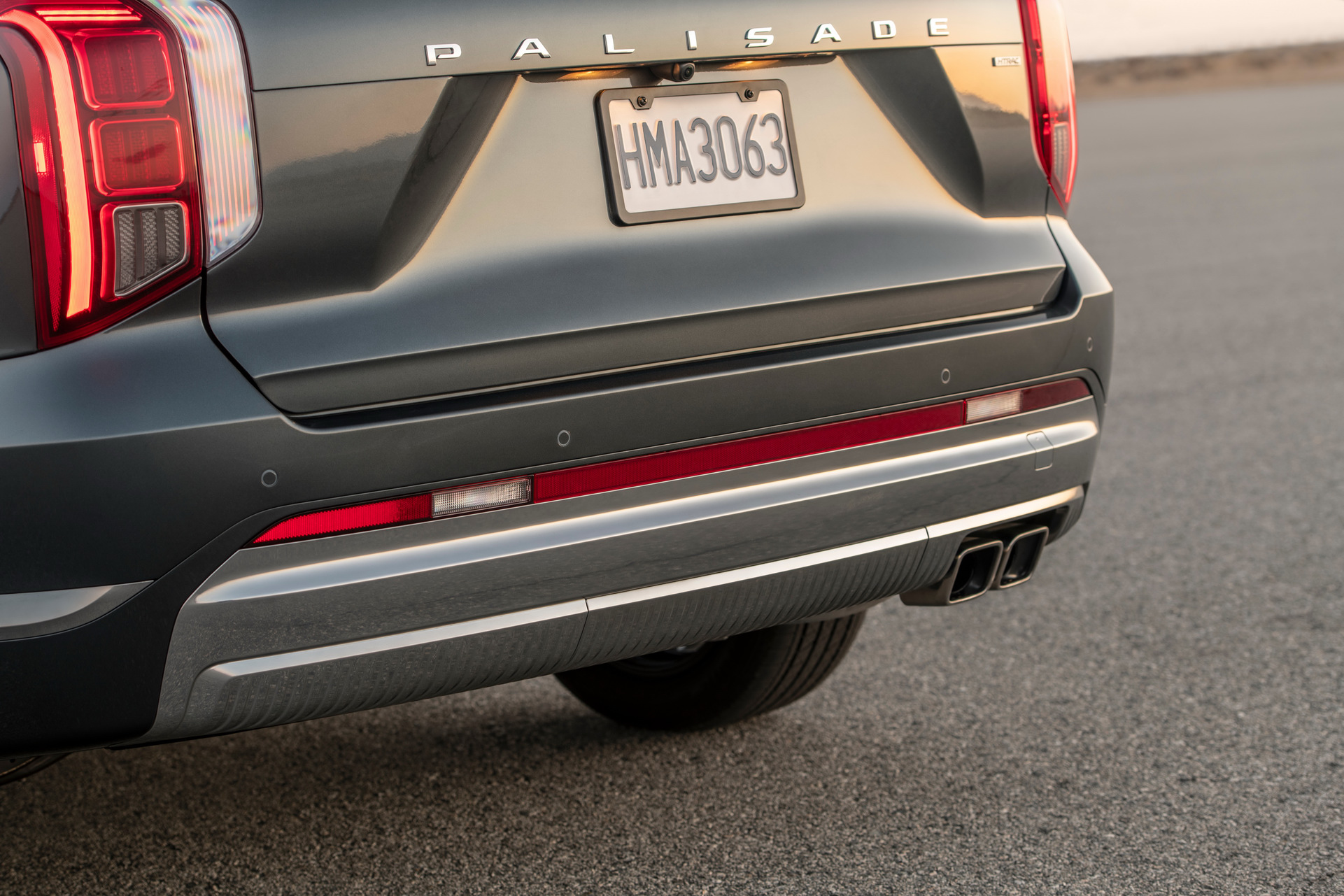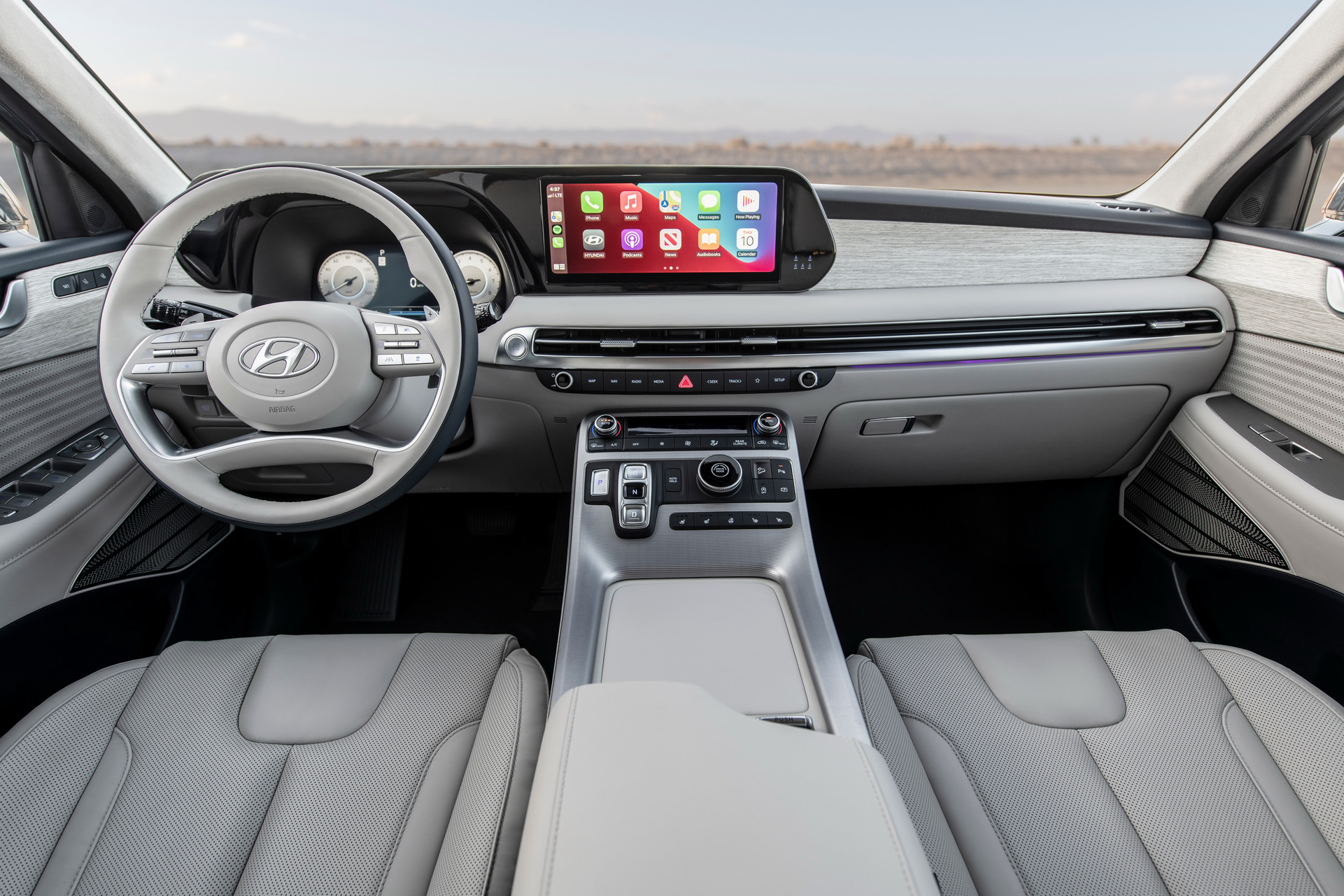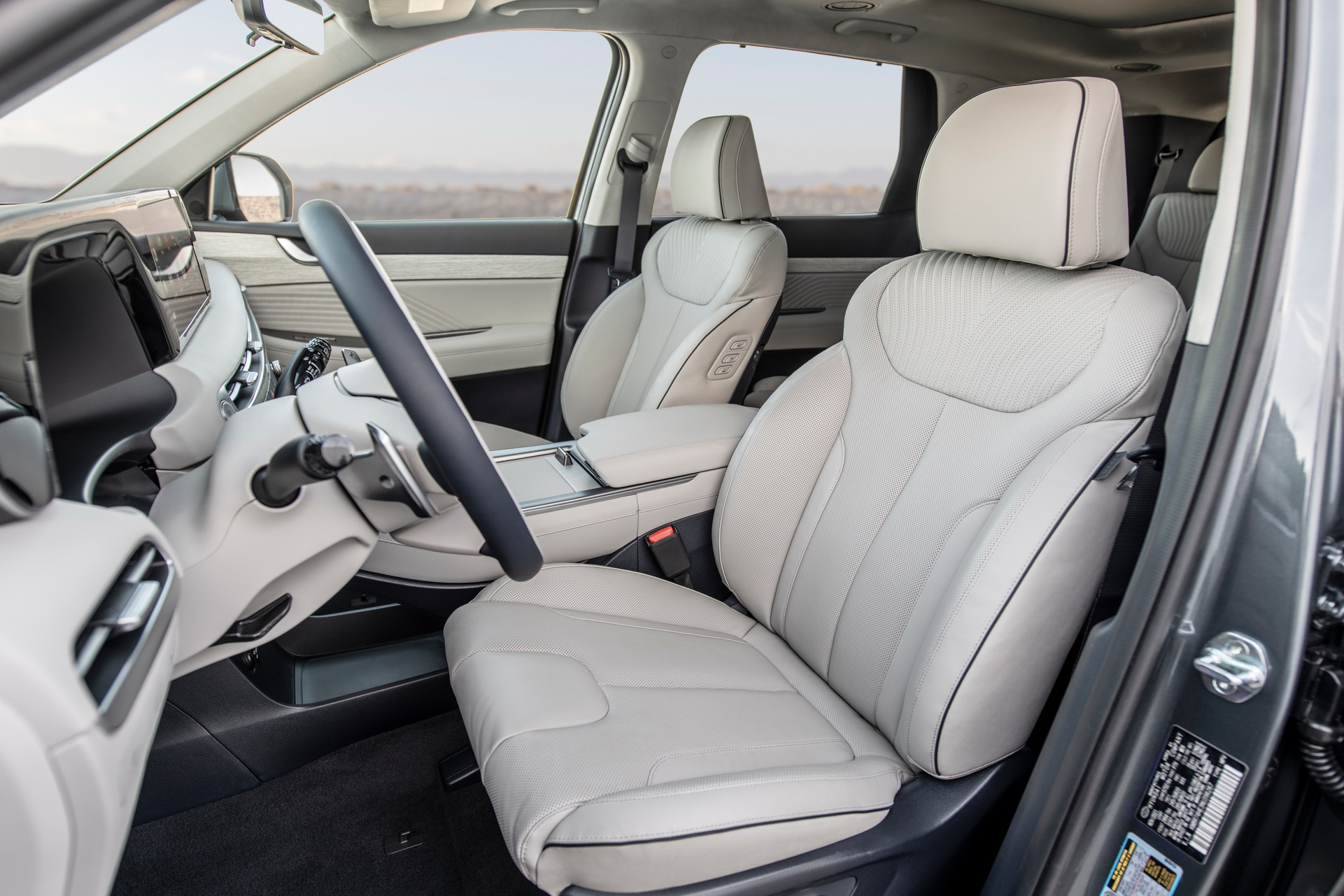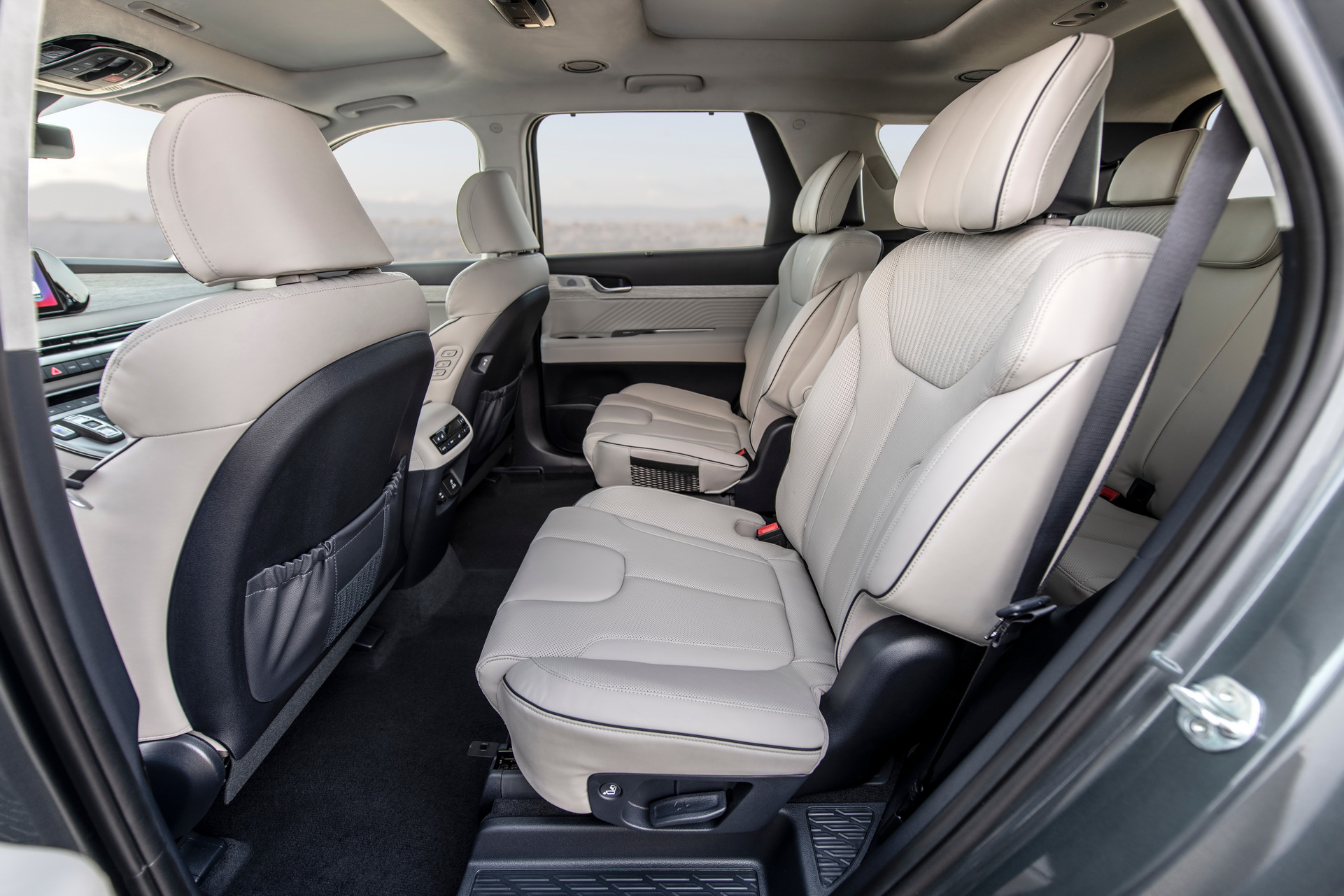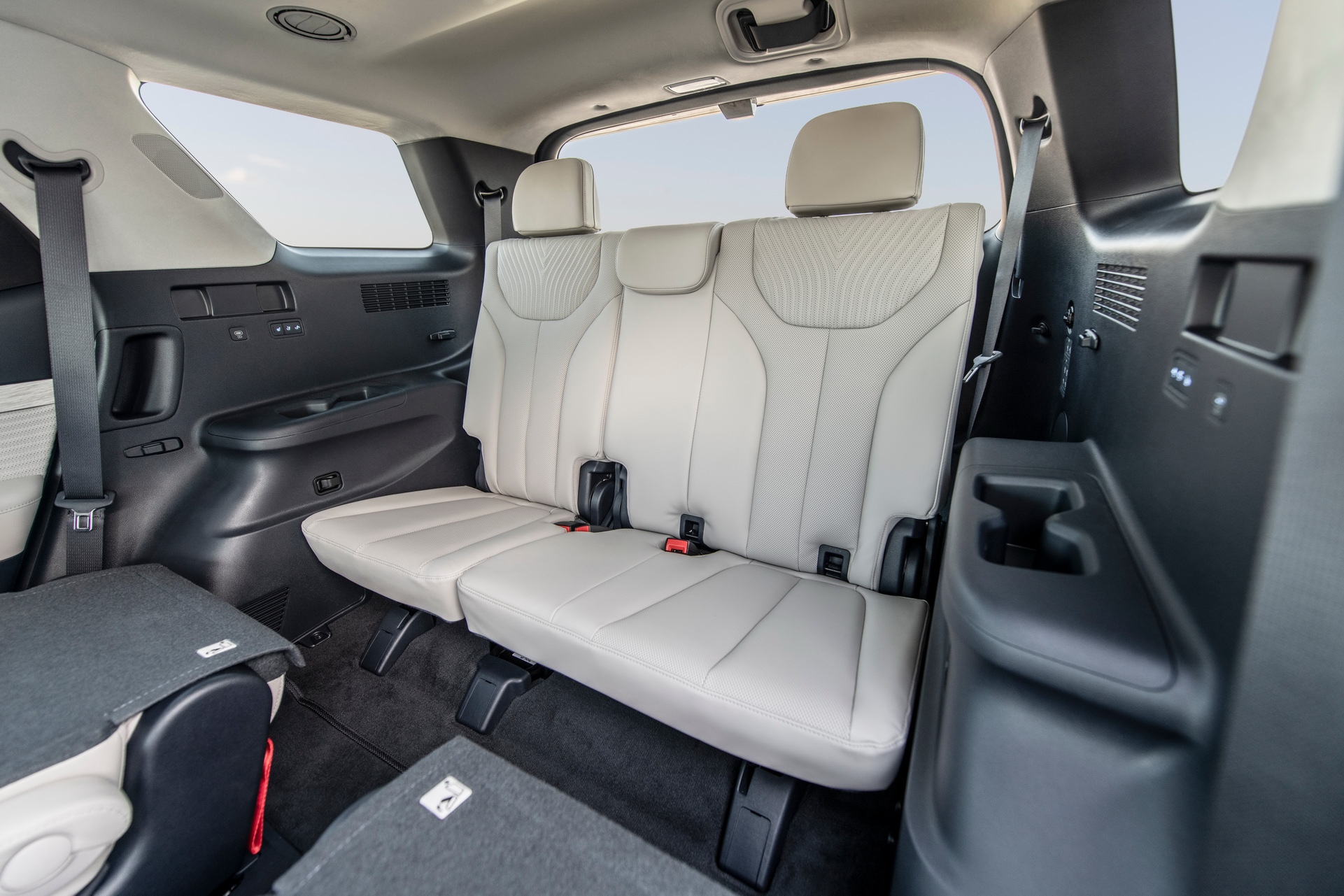- The National Highway Traffic Safety Administration has opened a preliminary investigation into potentially faulty seatbelts on the Hyundai Palisade.
- A total of 332,288 Palisades from the 2020-23 model years could be affected by a fault that causes the seatbelts to unlatch automatically.
- The NHTSA will use the outcome of the initial probe to decide if an engineering study is needed, which could lead to a full recall.
Modern cars are crammed with all kinds of clever electronic safety aids, but one of the biggest lifesavers remains the humble seatbelt. On over 330,000 Hyundai Palisades, however, those seatbelts might not be working as they should, and the National Highway Traffic Safety Administration has opened a probe that could eventually lead to a full recall.
The NHTSA’s preliminary investigation covers a total of 332,288 Palisades from the 2020-23 model years and was sparked by a number of complaints from drivers who reported problems with the seatbelts on their three-row SUVs.
Related: Here’s Everything We Know About The 2026 Hyundai Palisade
Data from the NHTSA’s Office of Defects Investigation says 37 reports were received alleging that the seatbelts unlatched themselves automatically, which might actually be a useful feature at the end of a journey, but wouldn’t be so great if it happened right before you rear-ended another SUV in a freeway pile-up.
There are a few hoops to jump through before this becomes a full-blown recall. The “preliminary evaluation” is just an initial probe that will be followed by an engineering evaluation if the NHTSA’s assessors decide the matter needs a closer look. And if the engineers declare that there is a fault with the Palisade’s seatbelts, then a recall will be announced.
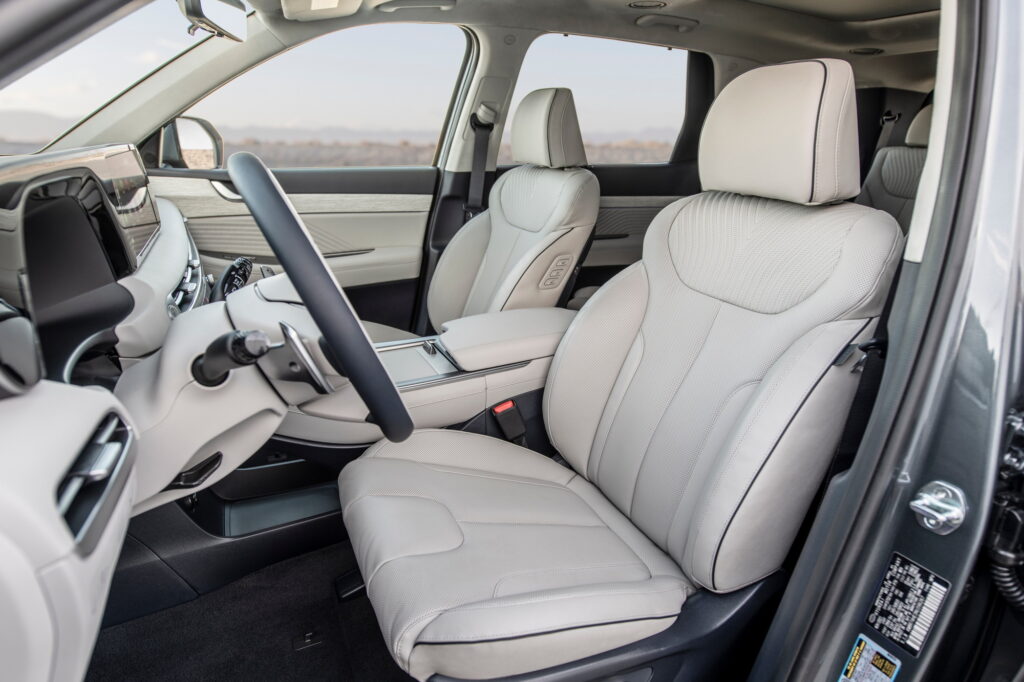
That means drivers who have already experienced a fault with their Palisade, and have been left feeling less than confident about its ability to keep them and their family safe, could have a while to wait until they achieve a resolution.
Earlier this year Hyundai recalled 4,000 MY24 Palisades because of a concern that the valve springs in the 3.8-liter V6 could break and punch a hole in the side of the block. The fault was traced to a batch of springs being damaged during the production process.








